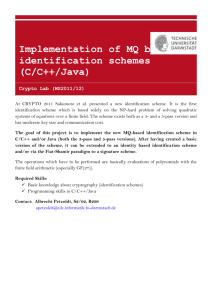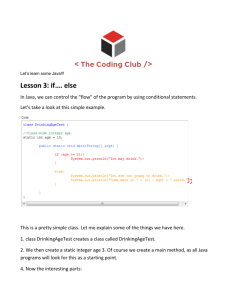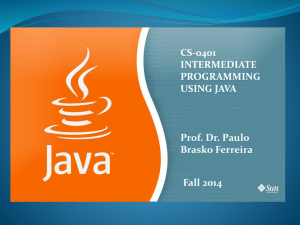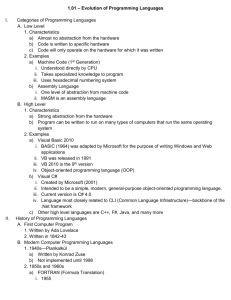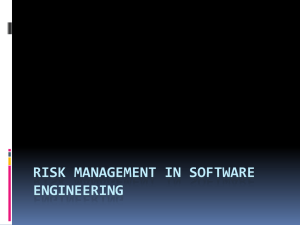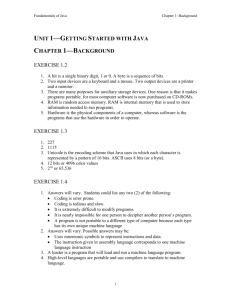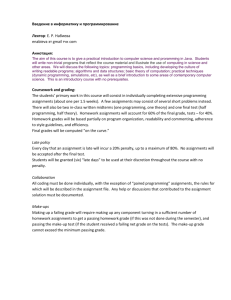Reflections on the mit aiti java course
advertisement
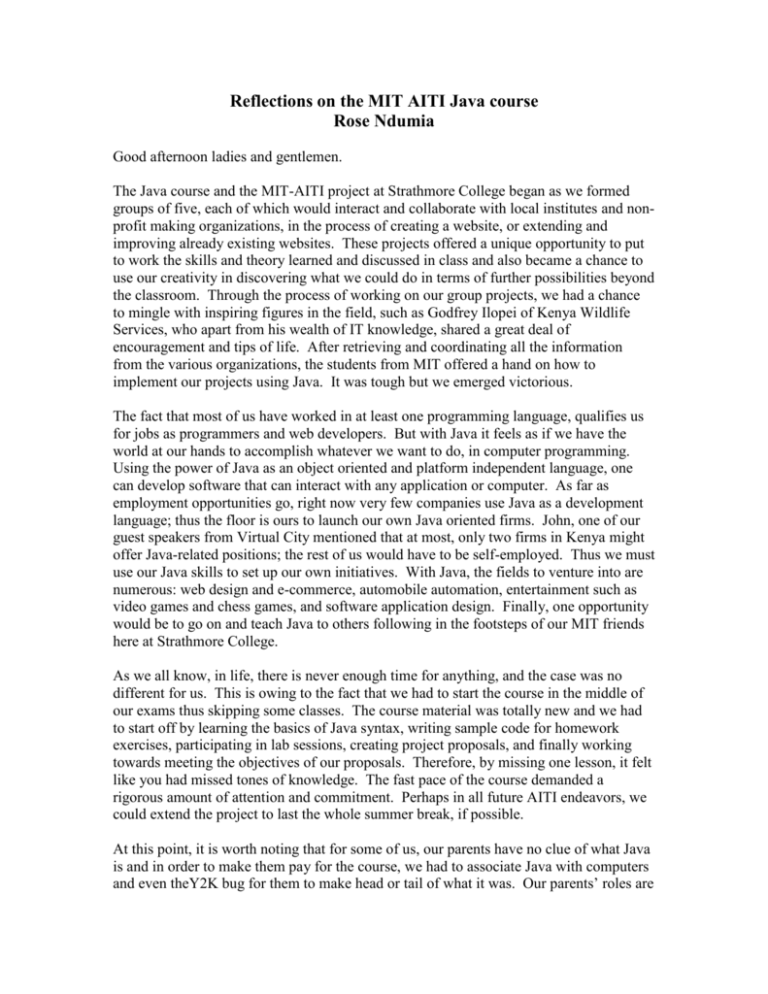
Reflections on the MIT AITI Java course Rose Ndumia Good afternoon ladies and gentlemen. The Java course and the MIT-AITI project at Strathmore College began as we formed groups of five, each of which would interact and collaborate with local institutes and nonprofit making organizations, in the process of creating a website, or extending and improving already existing websites. These projects offered a unique opportunity to put to work the skills and theory learned and discussed in class and also became a chance to use our creativity in discovering what we could do in terms of further possibilities beyond the classroom. Through the process of working on our group projects, we had a chance to mingle with inspiring figures in the field, such as Godfrey Ilopei of Kenya Wildlife Services, who apart from his wealth of IT knowledge, shared a great deal of encouragement and tips of life. After retrieving and coordinating all the information from the various organizations, the students from MIT offered a hand on how to implement our projects using Java. It was tough but we emerged victorious. The fact that most of us have worked in at least one programming language, qualifies us for jobs as programmers and web developers. But with Java it feels as if we have the world at our hands to accomplish whatever we want to do, in computer programming. Using the power of Java as an object oriented and platform independent language, one can develop software that can interact with any application or computer. As far as employment opportunities go, right now very few companies use Java as a development language; thus the floor is ours to launch our own Java oriented firms. John, one of our guest speakers from Virtual City mentioned that at most, only two firms in Kenya might offer Java-related positions; the rest of us would have to be self-employed. Thus we must use our Java skills to set up our own initiatives. With Java, the fields to venture into are numerous: web design and e-commerce, automobile automation, entertainment such as video games and chess games, and software application design. Finally, one opportunity would be to go on and teach Java to others following in the footsteps of our MIT friends here at Strathmore College. As we all know, in life, there is never enough time for anything, and the case was no different for us. This is owing to the fact that we had to start the course in the middle of our exams thus skipping some classes. The course material was totally new and we had to start off by learning the basics of Java syntax, writing sample code for homework exercises, participating in lab sessions, creating project proposals, and finally working towards meeting the objectives of our proposals. Therefore, by missing one lesson, it felt like you had missed tones of knowledge. The fast pace of the course demanded a rigorous amount of attention and commitment. Perhaps in all future AITI endeavors, we could extend the project to last the whole summer break, if possible. At this point, it is worth noting that for some of us, our parents have no clue of what Java is and in order to make them pay for the course, we had to associate Java with computers and even theY2K bug for them to make head or tail of what it was. Our parents’ roles are crucial in that they (parents) offer encouragement, even if they have no idea of the course we are taking, or how it is supposed to help us. They are understanding when we come home late in the evening, but I think they worry too much. Just to let them know, time just seems to fly by when working on the computer. All the same I suggest that we keep in mind we should create time for our parents, if or when we become programmers, as the work will demand much time away from home. Finally we must offer a vote of thanks to all of the individuals who made this year’s Java course such a success. First of all, thanks go to Strathmore College, who agreed to incorporate the MIT-Africa Internet Technology Initiative into the college, which is a great step towards promoting the Internet Industry in Kenya, and creating a long-term technical and cultural understanding between the MIT community and her counterparts in Nairobi and East Africa. Even more thanks towards the MIT students (or should I say graduates). It was a wonderful opportunity to work together with them, to share ideas and knowledge. It was a memorable experience, and we hope its fruits will mature soon. We also thank Africa Online and 3Com for their generosity in donating funds and equipment. We would also like to thank all of the guest speakers who came to talk to us, and most especially, Katarina Juma of Lawafrica, who stood out as one of the inspiring African ladies in the IT world. Thank you all for promoting such a worthy cause, and we look forward to a bright future fro ourselves, in our future endeavors-for the continued success of the MIT-AITI project and for the growth of Kenya in the IT industry. Thank-you.

